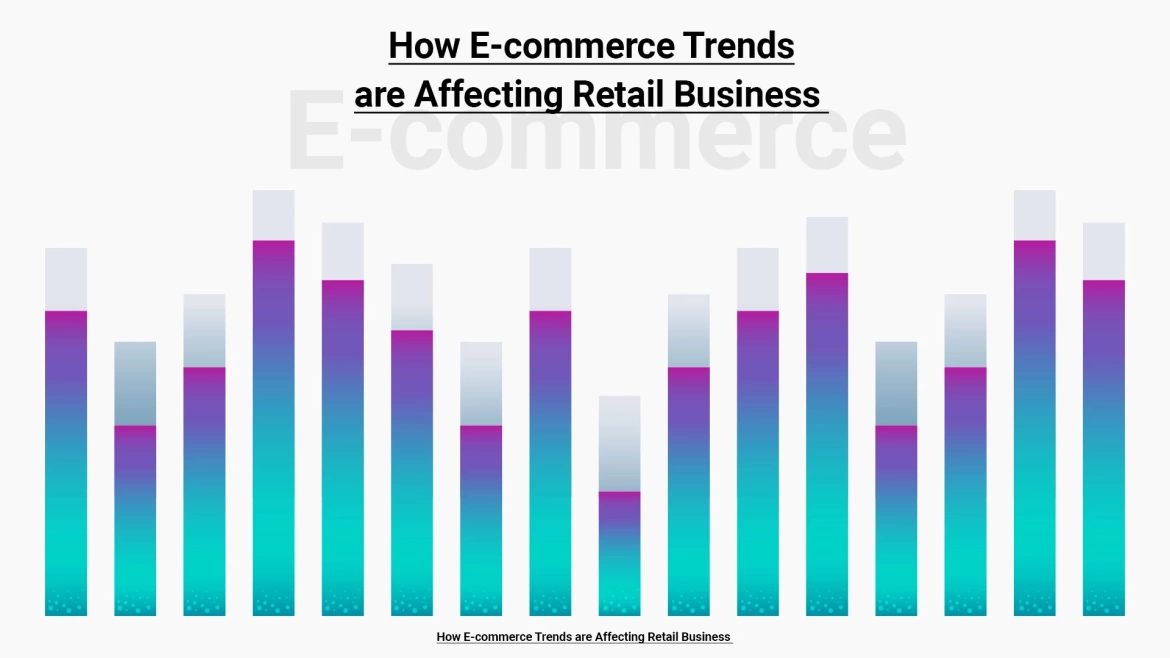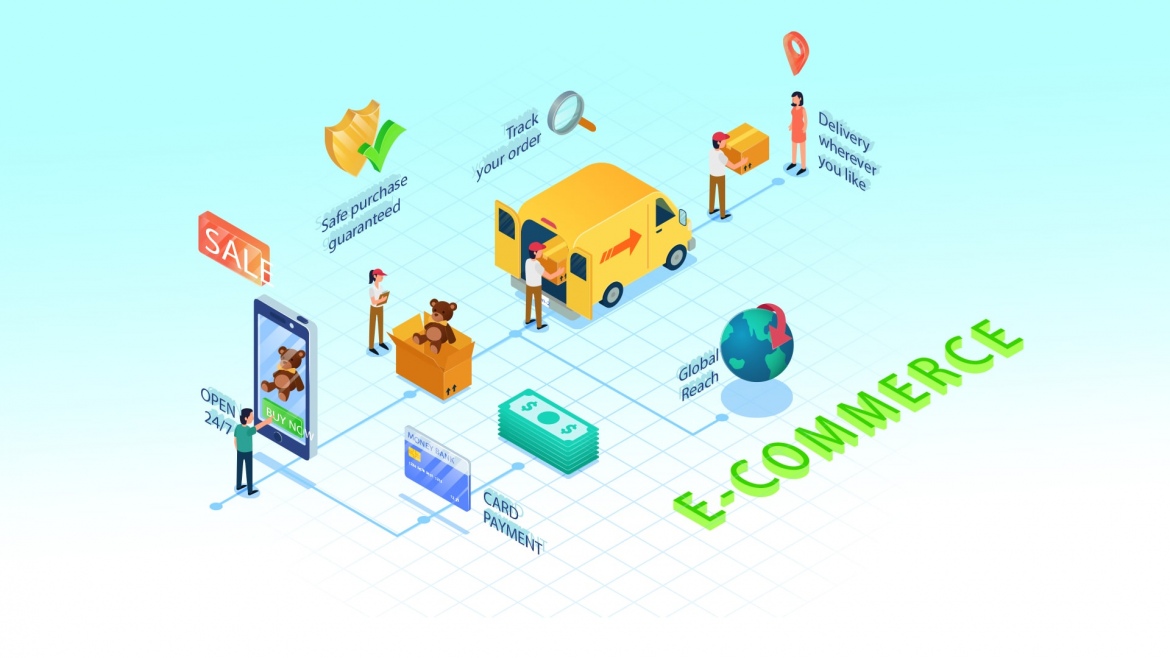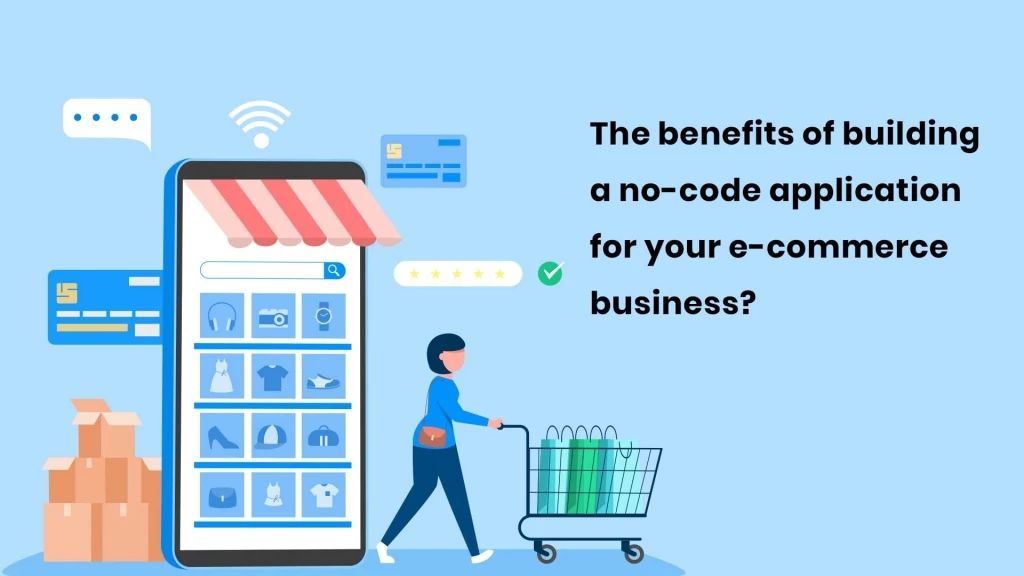Retailers are constantly looking for innovative ways to attract new customers, especially in this era when technology is evolving rapidly. Thanks to the fast-paced environment that we live in, brick-and-mortar shops are continuously being replaced with online shopping all across the globe. Earlier, the term shopping meant purchasing goods from physical stores, but with the advent of e-commerce, it no longer remains the same.
The changing technology and new trends are to be held responsible for driving e-commerce and affecting the entire retail business. Sooner or later, retailers will have to mark an online presence and adopt these new trends in order to sustain and bring more customers to their stores.
Benefits of E-commerce over Retail
- Faster buying process
- Reduced Cost
- Cost-effective advertising and marketing
- Flexibility for customers
- 24/7 availability
- Product and cost comparison
- Quickly adapts to buyer/market demands
- Multiple payment options
Top 4 E-commerce Trends Affecting Retail Business
While it may look like everything in the e-commerce industry is evolving for the better. we have listed down the top 4 trends that have and will continue to affect retail business in the years to come:
Improved Customer Engagement
Having an e-commerce store means having intimate and personalized conversations with customers. And who doesn’t like personalization? After all, we all love Starbucks for the same! Customized push notifications, messages, and emails add a touch of personalization which helps e-commerce stores increase engagement with their customers.
Not only this, e-commerce owners get to attract more customers to buy their products by sending out offers and discount codes to buyers right in their mailboxes. Whereas you won’t come to know about offers in a physical store until you visit it.
And there’s no denying the fact that retail businesses will get affected in the long run if e-commerce continues to keep up with the new trends to enhance customer engagement.
Enhanced Shopping Experience
The only advantage retail stores had over e-commerce was that customers could actually feel and try the products. But that’s no longer retail exclusive. Augmented reality (AR) has completely changed the online shopping experience after stepping its foot into e-commerce. With this latest technology, online buyers can perceive how a product would look on them. Shoppers can see the products in 3D and right away try apparel, footwear, or say accessories virtually. Thus the latest trends in augmented reality are surely going to shake things up and affect the retail businesses.
Improved Customer Insights
Artificial Intelligence (AI) and machine learning have helped e-commerce businesses offer customers an automated shopping experience for a long time. But what some of you don’t know is that AI also helps in getting insights on how a customer shops, when they purchase the most, and factors influencing them to buy a product or a service. This is something that physical stores can never ever replicate.
As an e-commerce owner, these customer data and insights are really crucial in shaping your business. You can identify the latest trends, understand customer behavior, their purchase patterns as well as analyze your marketing efforts. This data and insights will help you to make necessary changes to your inventory, advertising campaigns, and running offers that will be in the best interest of your business.
Mobile shopping is fueling e-commerce
With mobile shopping, customers have the freedom to shop at any time and from anywhere around the world. Today, e-commerce businesses are focusing on building responsive websites as well as mobile apps so that they do miss out on any big opportunity that comes through smartphones. Shopping on mobile phones gives users that added convenience plus enhanced user experience because of advanced features available on smartphones.
Today a majority of the customers search for any product or service online, visit websites, or download shopping apps right on their smartphones. This is because the Millenials and Gen Z consumers have grown up in a world that revolves around the Internet, computers, tablets, and smartphones. Thus it’s quite evident that these generations are more likely to shop online through their mobile phone as compared to their previous generations.
Almost every e-commerce business today is making sure that its website is responsive and optimized for mobile devices. Just imagine its effect on physical stores? We cannot even begin to think!
Conclusion
In the past few years, the e-commerce industry has absolutely escalated to the point that customers prefer to buy products and services online only. With the progress in technology as well as changing customer patterns and behavior, you need to constantly watch out for the latest trends in e-commerce. No matter which e-commerce trends you decide to implement, you need to make sure that your ultimate goal should be to give an enhanced shopping experience to your customers and build an everlasting loyal customer base.




